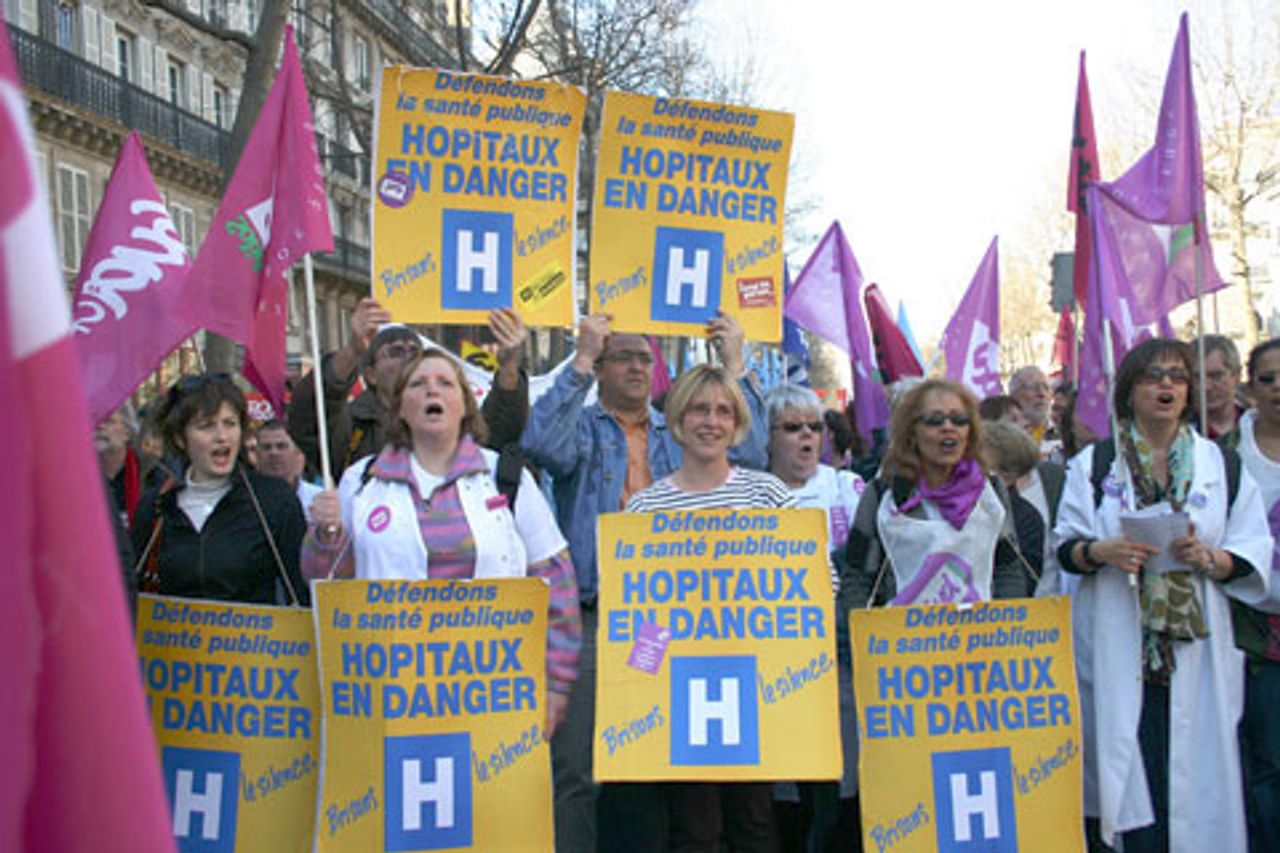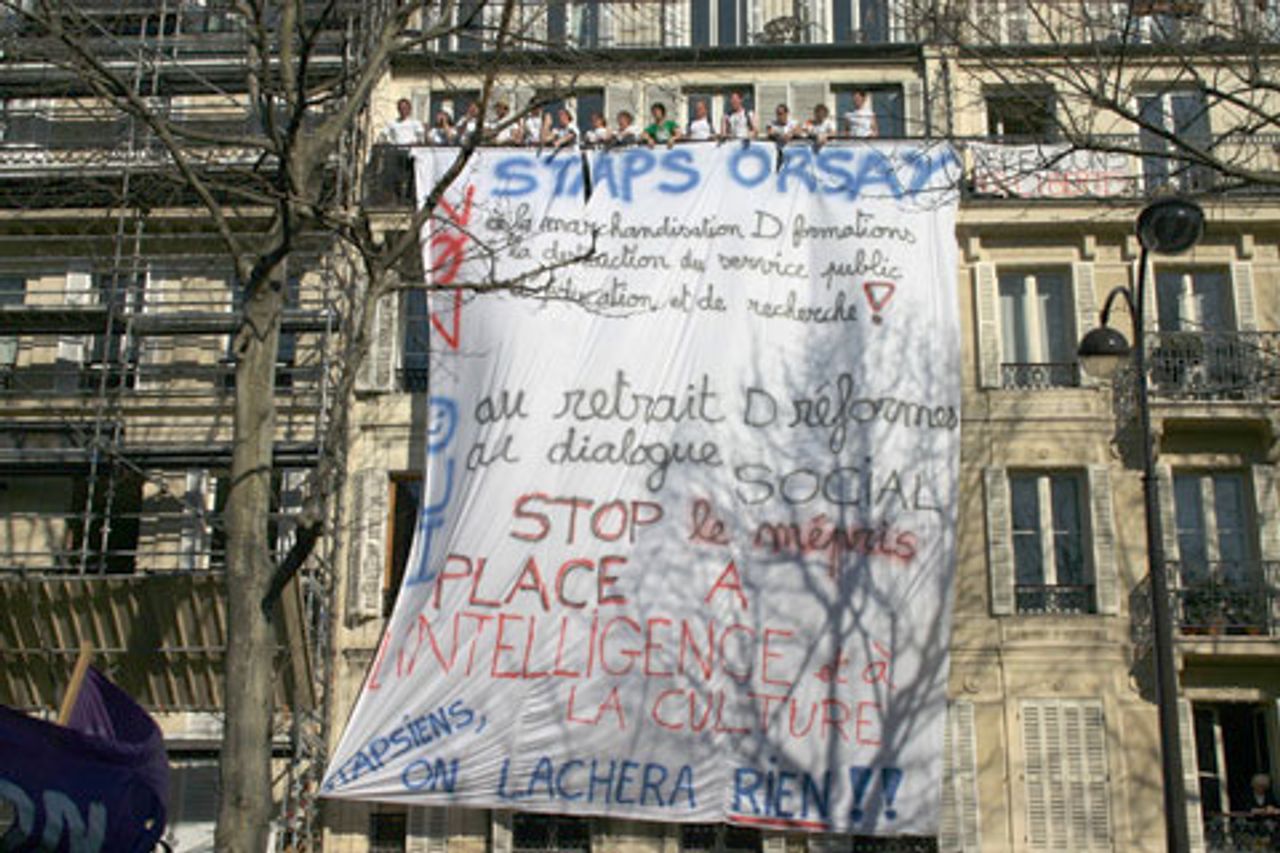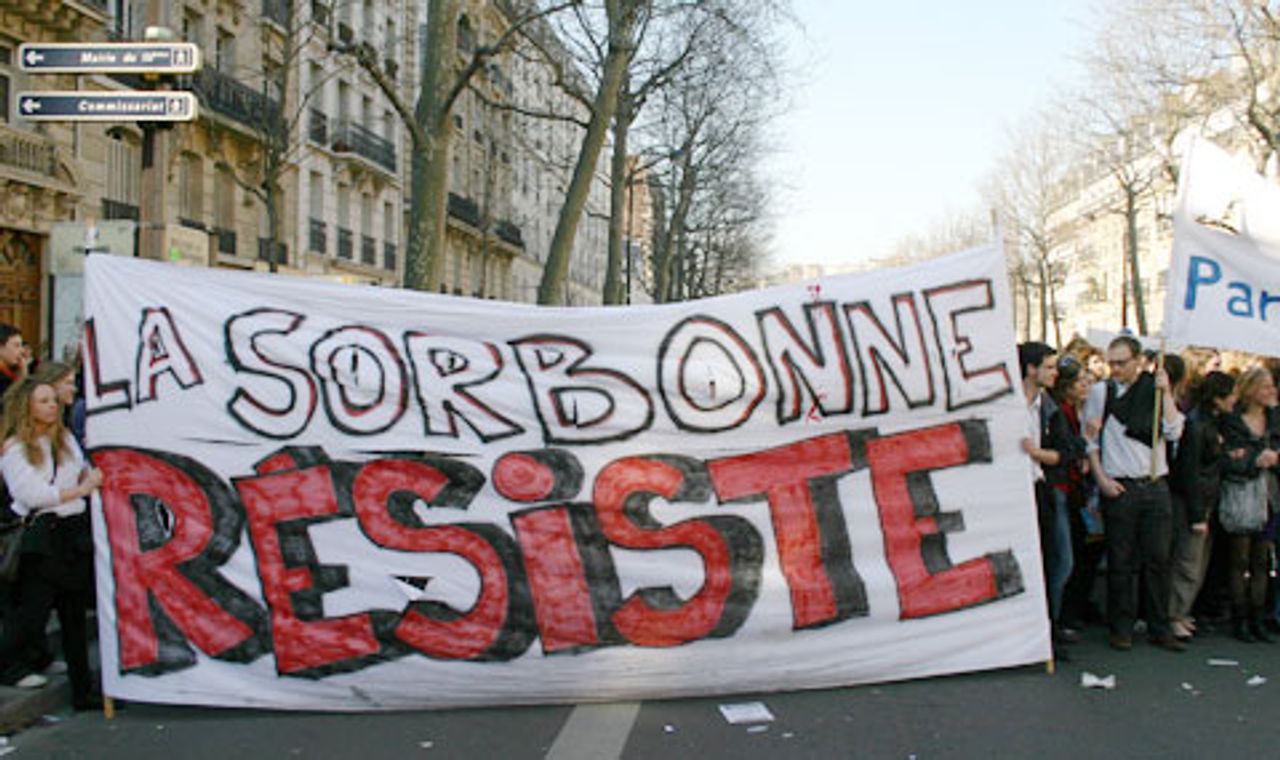 Defend public health - Hospitals in danger
Defend public health - Hospitals in dangerSeveral million workers and youth took to the streets in 213 cities and towns throughout France yesterday in opposition to rising poverty, rapidly growing unemployment and government austerity policies involving cuts in the social services.
Opinion polls have put approval ratings for the day of action at between 72 and 78 percent of the French population.
The action took place amidst the worst world economic crisis and recession since the 1930s, which is hitting the French economy and employment ever more heavily. Predictions for job losses in 2009 have soared to 400,000. In yesterday's edition of the business daily Les Echos, leading economist Pierre Ferracci warned, "We think that the surge of unemployment is only starting. In the second quarter, if we're not careful, we are going to have to confront a surprising wave of redundancies."
 Sports teachers: Stop the contempt - Make way for intelligence and culture
Sports teachers: Stop the contempt - Make way for intelligence and cultureAs usual there were wide discrepancies between the police and the unions as to the numbers participating in the demonstrations. There was general agreement, however, that the mass turnout on the streets on January 29 had been surpassed. Despite a slight decrease in numbers of strikers in public services, the response was again massive.
The CGT trade union estimated 350,000 in Paris against the police figure of 85,000; Marseille 320,000 (police, 30,000); Grenoble 60,000 (police, 34,000); Angoulême 25,000 (police, 14,000). The unions' total for the whole of France was 3 million (police 1.2 million) yesterday as against 2.5 million January 29.
Management figures for the 5.2 million public service workers were: EDF electricity utility, 17.5 percent of the workforce; SNCF public railways, 35.9 percent; the post office, 20 percent; primary education, 35 percent; secondary education, 24.5 percent.
Universities, whose students and teachers and researchers have been striking, occupying and blockading for nearly two months, were shut down all over France. The student union UNEF reported March 11 that there were 70 universities on strike, 25 universities totally or partially blockaded. Many mass meetings decided to close their campuses yesterday.
 The Sorbonne resists
The Sorbonne resistsThe mobilisation of retail workers, some of the lowest paid and most exploited, alongside education and health service workers and factory workers, is a growing phenomenon. In Paris yesterday, a contingent of McDonald's workers protesting against their working conditions and demanding better wages held a placard proclaiming: "We are not minced meat."
This mobilisation testifies to the determination of workers to resist attacks on jobs and social programmes.
The unions that organised the protests, however, put forward no policy for preventing the cascade of closures, lay-offs and sackings particularly affecting the motor industry and its suppliers (Continental, Dunlop-Firestone and many others). Since they defend the capitalist system, the unions merely offer a perspective of pressuring the government for concessions on their austerity programme. Prime Minister François Fillon has made it clear that he will not add a cent more to the €2.6 billion emergency package rejected by the unions as totally inadequate for them to be able to contain workers.
Le Figaro March 16 reported, "If the executive is counting on the sense of responsibility of the trade unions to moderate their demands, their anxiety has taken another dimension with the upsurge of more localised revolts."
mages/2009mar/m20-fra4-480.jpg" border="0" alt="Researchers protest" width="480" height="320" />National Centre of Scientific Research: Science without finance only means man's ruin
As with the prior strike on January 29, the Socialist Party mobilised small contingents for the March 19 demonstrations. Former Socialist Party presidential candidate Ségolène Royal, while feigning indignation at Sarkozy's intransigence, said, "Today we have trade union leaders who are extremely responsible."
Workers and youth interviewed by the WSWS on the demonstrations were sceptical as to the effectiveness of protest action and dubious about the desire or the capacity of the unions to fight the crisis and the capitalist system that is creating it.
The WSWS will publish a further report tomorrow of the day of action and interviews with protestors from different towns.
